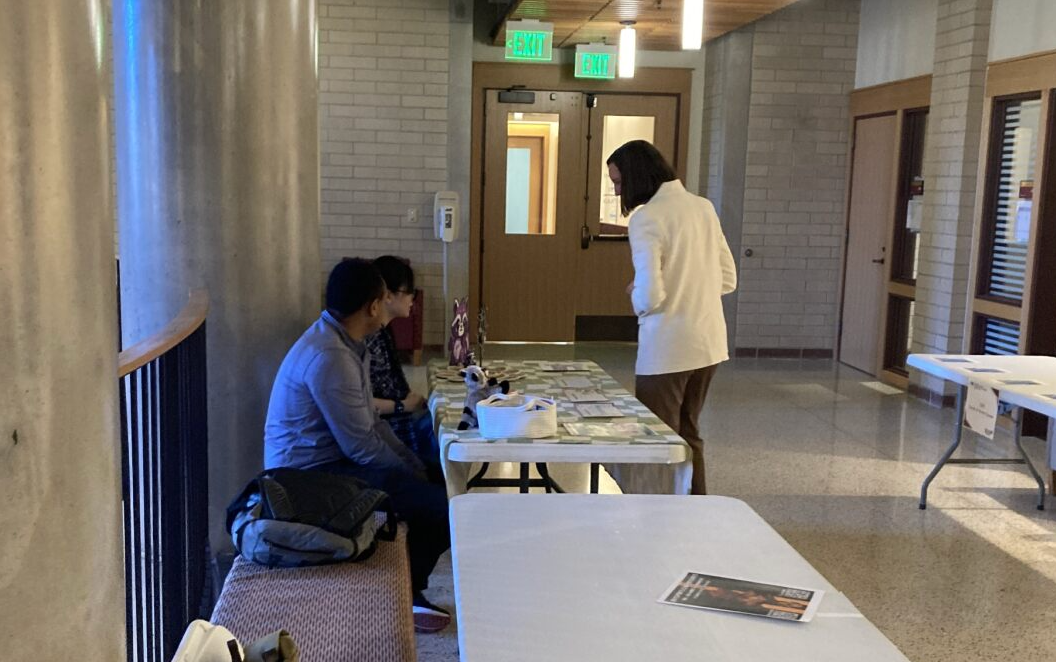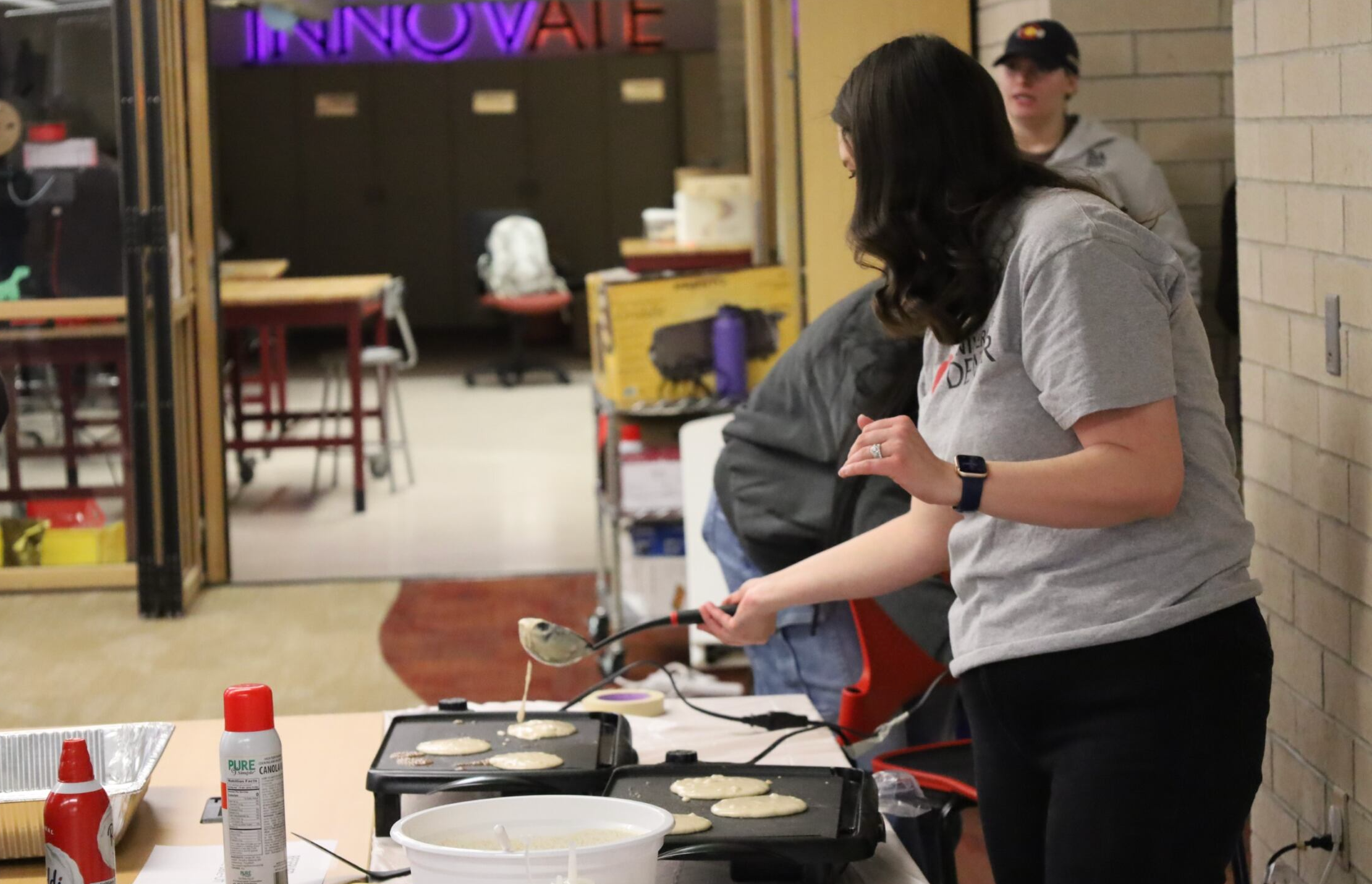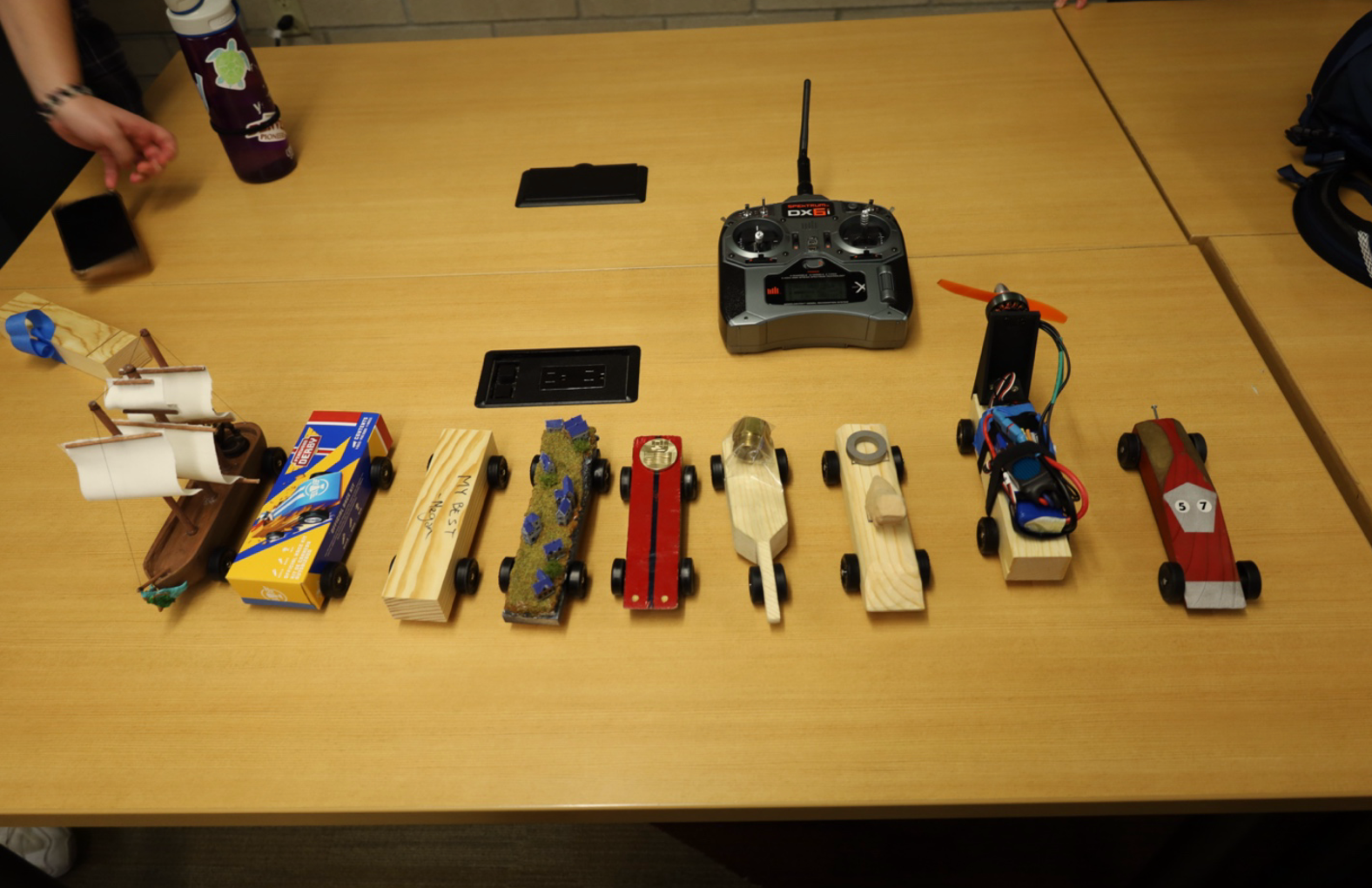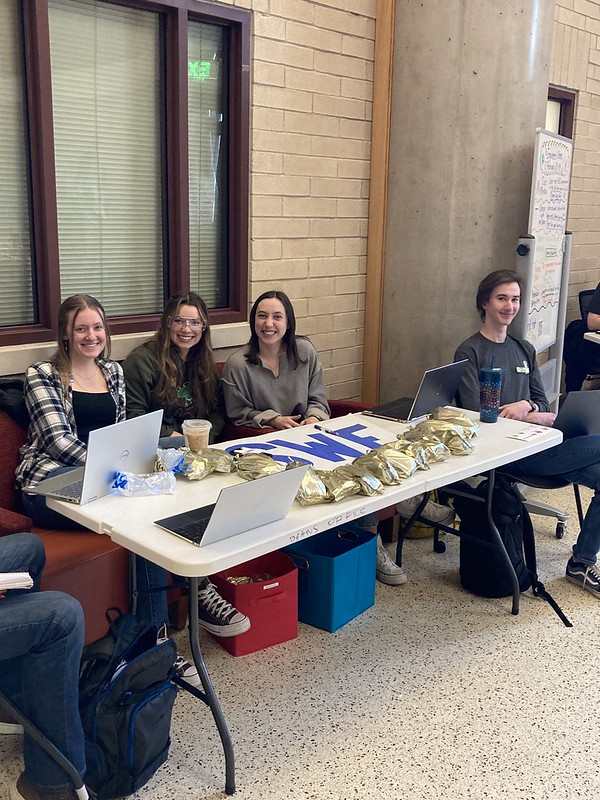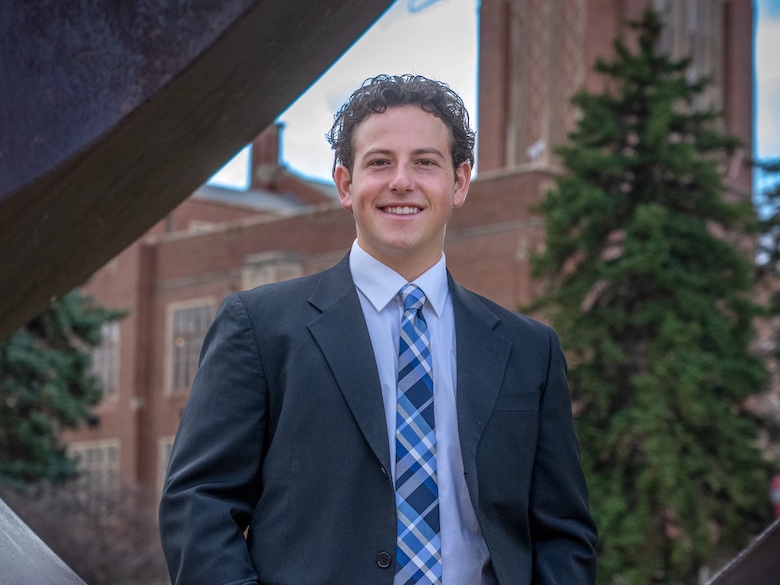Ritchie School Recaps Engineers Week 2024 Events
E-Week - 2024
Originally founded in 1951 by the National Society of Professional Engineers, Engineering Week (E-Week) is a recognized multi-day event across the country. The Ritchie School of Engineering and Computer Science took the week of, February 18-24, to celebrate the valuable work of its students, staff, and faculty with non-stop food and fun.
Day 1: Club Monday
The first day of E-Week saw the student organizations that operate within the bounds of the Ritchie School to engage with students. Clubs that are integral to the school’s vibrant extracurricular identity — like DU Dungeons and Dragons (DUDADS), which produces its 3D-printed figurines in the Innovations Lab, and the Game Development Society (DUGDS), which recently hosted DU’s Global Game Jam — offered information and swag to students.
Affinity organizations, such as the National Society of Black Engineers (NSBE), made their appearance. “I really enjoyed the community and questions that we got surrounding NSBE,” said the organization’s senator Alisha Pravasi. “It was interesting to see multiethnic perspectives approach our table.”
DU’s Chancellor Jeremy Haefner stopped by to check out all that the clubs had to offer, making a stop by the Algorithms Club to speak with students abot the organization. Hector Rodriguez, a Student Ambassador for the Ritchie School, and a member of the Algorithm’s Club emphasized how the event offered more opportunities for professional development to those involved.
“As I was tabling for the Algorithms Club, a recruiter from Comcast came by and gave us her details so that we could set up a mock interview session with a bunch of recruiters from Comcast,” Rodriguez said. “Although they would only be mock interviews, this is an awesome way to provide connections to the Algorithms Club as well as emphasize the importance of practicing algorithm problems to secure a job in the future.”
Day 2: Game and Study Day with the STEM Writing Program
In collaboration with DU’s Writing Center, Ritchie School students were treated to a bagel breakfast, with donuts and coffee to spare — perfect to get the creative juices flowing. The Writing Center gave students a prompt to test their fiction writing chops in a relaxing environment, but in addition to the fun, the center promoted the “specialized STEM services” that often go underused by STEM students.
“Writing is a huge part of working in STEM; engineers, for example, spend as much as 40% of their professional time writing,” wrote Writing Support Initiative Coordinator Fredrica Eduaful and Writing Center Director Juli Parrish. And the writing center offers ample ways for students to grow their skills by participating in the “STEM Writing Support Initiative.” The initiative offers writing seminars where students can learn from industry professionals, technical writing workshops that offer tools to excel in STEM genres, and appointments where students can work with consultants.
“Mostly, we hope that STEM majors participate in any way that makes sense to them; let us know what they find valuable; and share their ideas for writing concepts, strategies, genres, and ways of thinking they’d like to learn,” wrote Eduaful and Parrish.
Students mingled, ate breakfast, and took part in the various games scattered across each table, like Scrabble and Banana-grams to relax and study.
Day 3: Wellness Wednesday with KIHA
In collaboration with the Knoebel Institute for Healthy Aging (KIHA), the Ritchie School hosted Wellness Wednesday on the third day of E-Week, providing a stress-free environment for students to relax mid-way through the Winter quarter.
There were lots of activities for students to do in order to relax and de-stress. Coloring was encouraged with art supplies provided as students snacked on slices of pizza, provided by organizers. Students played the available games, listened to music, and chatted.
KIHA is an interdisciplinary initiative designed to help our community develop healthy habits, interpersonal connections, and management of health conditions for a lifetime of quality experiences. KIHA brings together key strengths from the University of Denver and the region to address growing needs here and throughout the nation.
Day 4: Pancake and Waffle Bake-Off
Three baking teams — Dr. Breigh Roszelle, The Waffle Club, and the Innovations Lab — all competed on the fourth day of E-week to woo students with their batter. Dr. Roszelle’s team and the Innovations Lab took more traditional approaches, they piled berries, whipped cream, and maple syrup onto their delicacies.The team of student workers, who staff the lab while it is used by creators from the Ritchie School or beyond, took the cake when it came to design, griddling flatcakes in the shape of Mickey Mouse and a dinosaur.
For a slight spin (or swirl) on a classic, Dr. Roszelle’s team brought the iconic sweetness of a cinnamon roll to a pancake medium, piping cinnamon onto the batter before layering on icing hot off the griddle.
The Waffle Club, with Computer Science Professor Alex Stevens at the helm, showed some ingenuity, developing a savory waffle with Kimchi and cheese.
Bakers competed in a series of one-off challenges and an overall competition, but the real winners were the Ritchie School students who stopped by on their way to class, feasting on the delectable concoctions of each competitor.
Day 5: Pinewood Derby-Style and A.I. Generation Competition
Rounding off E-Week, the Pinewood Derby-style competition brought a huge crowd of spectators and competitors of all ages together in a feat of engineering, design, and creativity.
The Pinewood Derby is a tradition practiced by the Boy Scouts of America, where participants must design a wood car using standardized materials. In a traditional setting, the car is only propelled by gravity, racing down a two-lane track sloped downwards. Cars must weigh in ahead of the race, qualifying with less than 15 grams.
The Ritchie School takes the conventional race to its extremes, including a “sleeper build” and “propulsion” category, allowing students to get creative. Many of the cars are built utilizing the Ritchie School’s several engineering suites, the Innovations Lab, the Machine Lab, and the Wood Shop. Some students go for glamour — crafting intricate, artistic designs — and others for glory — appending heavy metals to the rear of cars for added momentum.
Third-year computer science major Brian McCullough adopted the former, building a quaint 3D-printed village atop of his car: “Small French Countryside.” After falling early in the first round, where cars were required to abide by traditional rules, McCullough renamed his car “Small French Countryside, After It Rained,” spraying WD-40 onto the axles to compete in the sleeper build race.
Carter Sorenson took a no-nonsense approach, attaching a battery-powered fan to the back of their car to take the propulsion category with ease. Using a remote control, Sorenson set the fan’s spin into motion, launching the car into a flying start and crossing the finish line with a whir.
Spectators were welcome to enjoy cotton candy, spun by the Ritchie School’s team of student ambassadors. There was also a simultaneous competition for students to generate the best AI-generated image based on the future of AI, virtual reality, and society.
Submissions ranged from dystopian and Orwellian to hopeful and optimistic, with images depicting the integration of technology across several spheres of human life, from infrastructure to government to education. People can see the pictures on display throughout the Ritchie School.
"It was wonderful to see so many students excited about and engaged with our Engineers Week programming and events,” said Student Services Coordinator Sabrina DeGroot, who was responsible for organizing much of the week. “I loved celebrating all of our amazing students' contributions to STEM throughout the week with them, as well as the opportunity to provide extra fun, connection, support, and appreciation."
